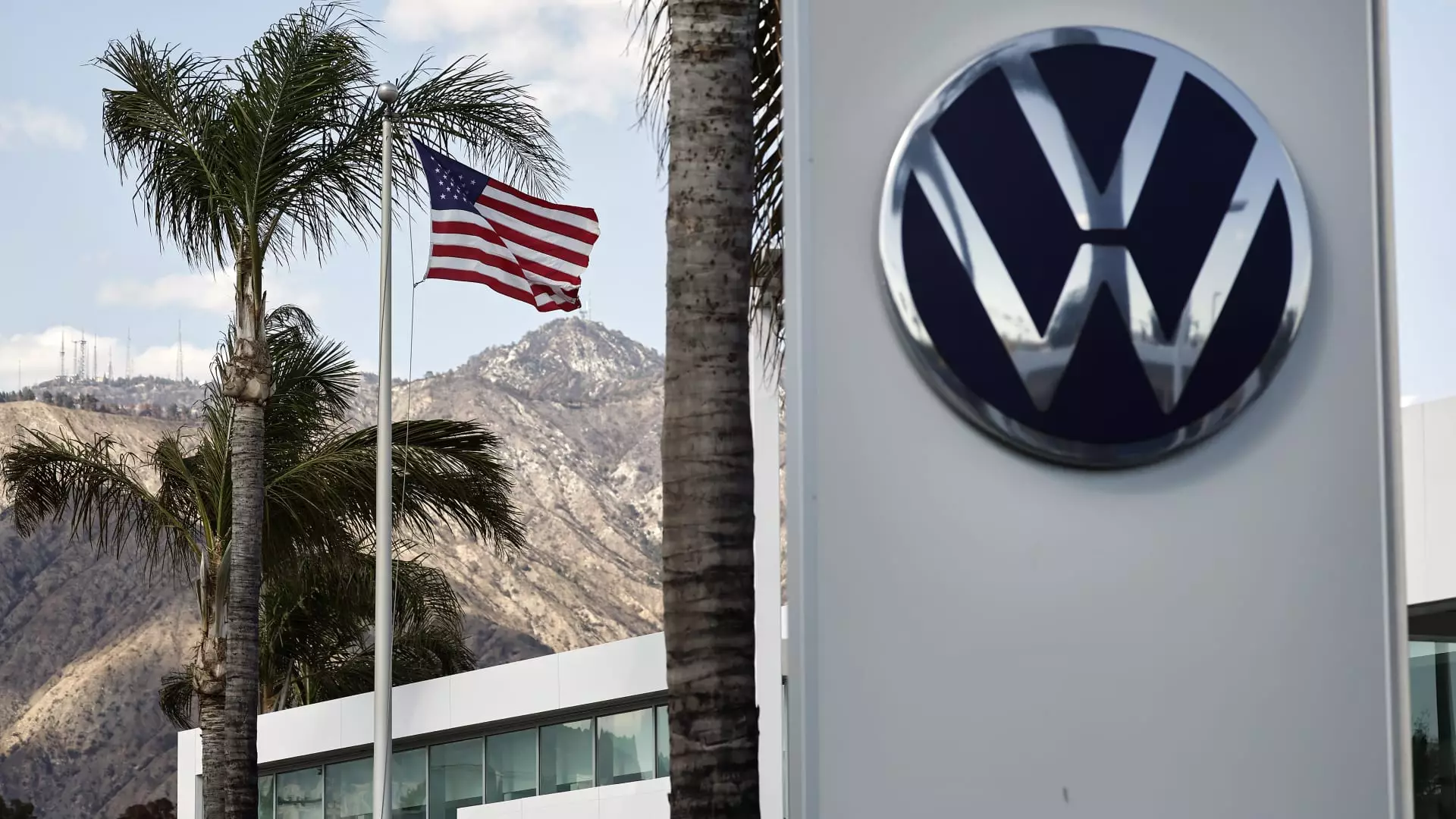The auto manufacturing giants of the world are recalibrating their strategies as a reaction to the swirling tempest of global trade regulations, particularly American tariffs. Volkswagen, Europe’s behemoth in automotive production, recently revealed a staggering 37% decline in profits for the first quarter. This raises serious concerns regarding the vitality of the industry amid fluctuating political landscapes and economic uncertainties. If veteran players like Volkswagen are feeling this pinch, what does that spell for emerging carmakers and the global economy at large?
Rapid Declines Amidst Flickers of Growth
While Volkswagen reported an operating profit of €2.9 billion (roughly $3.3 billion), the stark contrast to the previous year’s figures serves as a signal flare of discontent. The company may have enjoyed an uptick in sales revenue, clocking in at €77.6 billion—up 2.8% from the first quarter of 2024—but buried beneath these figures is the reality that external market conditions are wreaking havoc on their bottom line. With vehicle sales rising, particularly in regions outside China, one could argue that the company is merely keeping its head above water. The fact that they didn’t meet projected profit expectations, initially estimated at around €4 billion, significantly shores up the notion that all is not well in Volkswagen’s paradise.
The Costs of Corporate Risk Management
Volkswagen’s Chief Financial Officer, Arno Antlitz, confidently remarked that the company would focus on “levers within our control,” emphasizing cost management and product range enhancement. However, one must ask whether tightening the financial belt adequately responds to the overwhelming pressures imposed by external factors like tariffs and trade wars. Volkswagen’s ambivalence towards political uncertainty suggests a struggle to maintain equilibrium amidst vast global changes, a truth that’s ironically juxtaposed with their conviction in operational credibility.
The political landscape is a quagmire of unpredictability, with the potential for even heftier tariffs lingering like a specter over the auto industry. In particular, Trump’s inconsistent foreign trade policies create a perpetual fog of uncertainty, complicating strategic long-term planning. As it stands, such tumultuous environments challenge the capabilities of even the most seasoned industry giants, making one wonder whether Volkswagen’s reactive strategies are enough to weather the ongoing storms.
An Industry at a Crossroads
Volkswagen isn’t the only player grappling with these challenges. The automotive sector is currently reeling from various pressures like rising materials costs, trade restrictions, and new emissions regulations. The situation looks bleak, and yet, optimism remains tied to external factors that are equally mercurial. The prospect of partial relief from auto tariffs might seem like a lifeboat amidst raging waters, yet the structural vulnerabilities embedded in the supply chain expose far more precarious elements.
The recent move by the Trump administration signaled a minor reprieve for manufacturers—potentially softening tariffs while keeping others intact. It’s akin to a band-aid over a gaping wound; while there may be temporary relief, the core issues remain and are likely to fester. The emphasis on short-term fixes doesn’t equip companies like Volkswagen to engage with the broader issues at hand and diminishes any competitive edge they possess.
The Road Ahead: A Winding Path of Change
As Volkswagen braces itself for an uncertain future, it finds itself at a pivotal juncture. Previous patterns dictate that in order to prosper, they need to adapt to a new economic climate increasingly characterized by volatility and rapid change. Predictions of lower annual forecasts for operational returns magnify the inherent risks of maintaining current trajectories in the face of robust doubts.
In a world where shifts come swiftly, the expectation to remain agile and resilient highlights an essential truth: the auto industry is not insulated from broader socioeconomic currents. As companies like Volkswagen try to navigate these tumultuous waters, accountability toward stakeholders must evolve if they wish to thrive. Ignoring this fact would be analogous to driving blindfolded on a busy freeway—foolhardy, risky, and ultimately unsustainable. Without embracing innovative strategies that transcend mere profit margins, the future remains riddled with uncertainty.

